Double Gold Raspberry Plant
Description
Unique blushed color is outstanding in fruit displays. Fruit color ranges from peachy gold to vibrant coral. Highly productive plants bear crops of conical-shaped raspberries with a tender, juicy texture and excellent flavor – easily a fan favorite! Ideal choice for variety in “u-pick” stands and farmer’s markets. Introduced in 2012 by Cornell University. Named for its “double” bearing nature: Fall-bearing (everbearing) primocane with a summer crop. Floricane berries ripen in July. Primocane berries ripen in September through frost. Disease-resistant to phytophthora root rot and common leaf issues. Cold-hardy. Self-pollinating. A licensed variety of Cornell University. May be covered by USPP #24,811 or other patents.
Note: Do not plant Red, Gold or Purple raspberries within 75-100 feet of Black raspberries. Black raspberries may be more susceptible to viral diseases carried by aphids to and from nearby raspberry plants.
After planting, be sure to prune the bare-root canes back to about 2 inches above the ground. (This does not apply to potted raspberry plants.) Do not skip this step! It is a crucial factor in encouraging the roots to send up new growth during the growing season. It is in the nature of raspberry plants to send up new growth as suckers or basal shoots from below the ground. This means the canes that you plant may not be where you find signs of life or new growth. When it’s time to grow, you will see new sprouts emerge from the ground around where you planted the cane, and this growth is coming from the raspberry plant’s root system.
Survival Guaranteed!
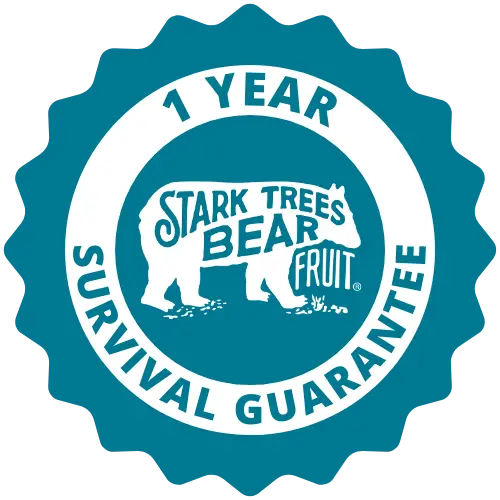

Since 1816, Stark Bro’s has promised to provide customers with the very best fruit trees and plants. It’s just that simple. If your trees or plants do not survive, please let us know within one year of delivery. We will send you a free one-time replacement, with a nominal shipping fee of $9.99. If the item in question is not available, we can issue a one-time credit to your account equaling the original product purchase price or issue you a refund. Read more about our warranty policy.
Characteristics
| Bloom Color | White |
| Fruit Color | Orange |
| Fruit Size | Medium |
| Hardiness Zone Range | 4 - 8 |
| Pollination | Self-Pollinating |
| Ripens/Harvest | July And September Through Frost |
| Shade/Sun | Full Sun |
| Soil Composition | Loamy |
| Soil Moisture | Well Drained |
| Soil pH Level | 6.0 - 6.8 |
| Taste | Sweet |
| Texture | Tender, Fine |
| Years to Bear | 1 - 2 |
Size & Spacing
Mature Size
Recommended Spacing
Zone Compatibility
Pollination
This variety is self pollinating.
Tools & Supplies
Planting & Care
Learn all about how to grow raspberry plants in The Growing Guide. An entire section of our website dedicated to your growing success.
Shipping Information
Estimated Delivery Date
Arrives when it's time to plant
Questions & Answers
There are many reasons, depending upon how old the plants are and where you're located. Are you overwintering with a different mulch than you use in the summer months? That will affect the flavor of the spring crop. If you typically have a rainy spring that's cloudy a lot, that will affect the flavor. Raspberries need a lot of sun to sweeten. If the canes are young, that's another reason. With maturity, they grow sweeter berries. Too much fertilizer will make berries bitter; are you overdoing it in the spring?
Thank you for your question. Sure, you can. This is a farmer's market favorite.
Yes, lots.
I can't say for sure but I live in the central valley in CA our summer temp is around 98 every day with heatwaves in the 110s and fairly warm nights and the plant grew fine but the berries got burnt, I had to build a shade for them, hopefully next year they will be better!
They are not thornless, but they have fewer/less-ominous thorns than most raspberry plants. Just wear gloves when you prune/pick and the results will be more than worth the effort. This is an extraordinary raspberry from Cornell University.
Not large but not tiny. I'd have to say average size. I'm just paying attention to how GOOD they are!!!! I have raspberry plants that the thorns are huge!! These don't come close. Suggest you stay away from Polar Bear Raspberries! Enjoy the Double Gold!!! They are AWESOME!!!!
Both blackberries and raspberries belong to the Rubus genus. Blackberry and raspberry plants look very similar—both featuring thorny canes and compound leaves with toothed edges in groups of three or five. One key difference between the fruits of blackberries and raspberries is the way the fruits are formed. The tiny globes of the fruits, called drupelets, are attached to a white core in blackberries. Raspberries, including black raspberries, form drupelets with a hollow core.
Our Jumbo Cellpacks are an ice cube tray like pot that has 3 or 6 sections that will each contain an individual plant. A Jumbo Cell Pack is a bigger version of the divided 6-packs that you may have bought annuals or vegetable plants in, at your local garden center. When shipped these one-year-old plants are new starts about 4-6" tall and should grow rapidly during the next growing season.

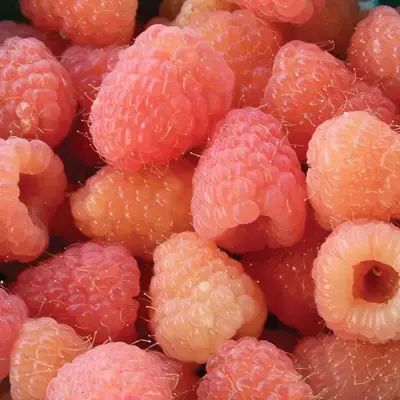
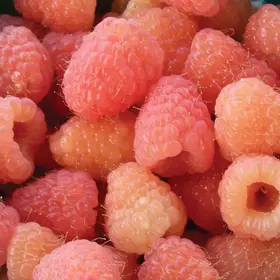
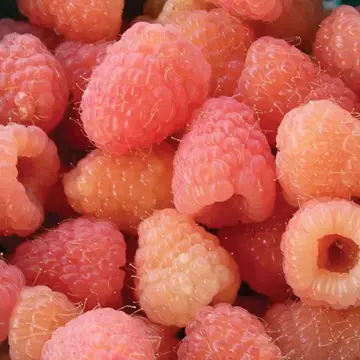
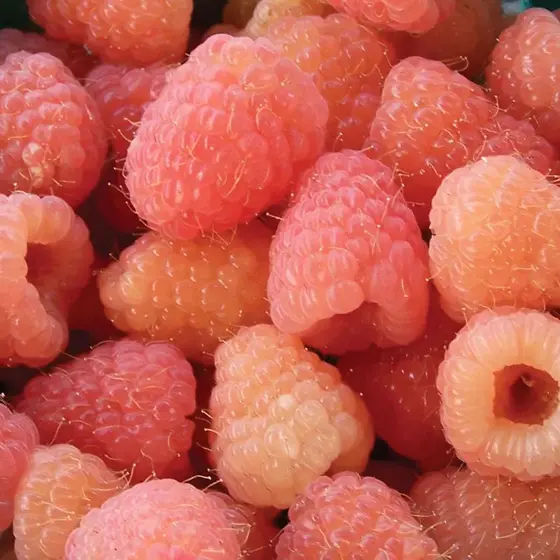
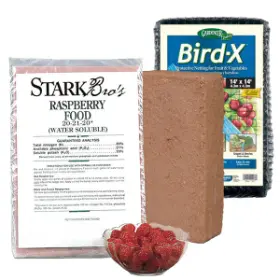
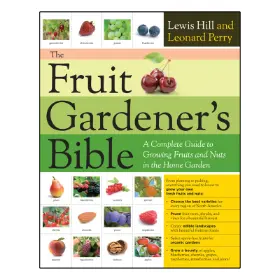
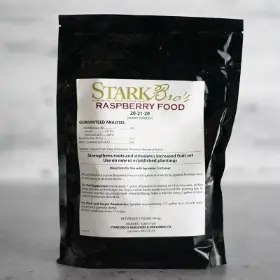
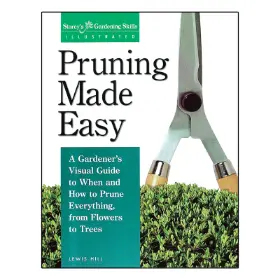










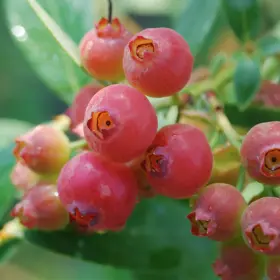
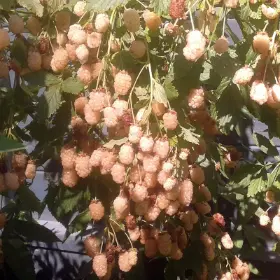
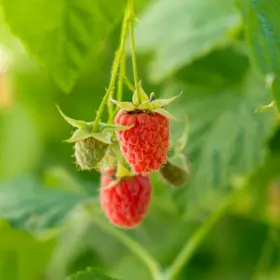
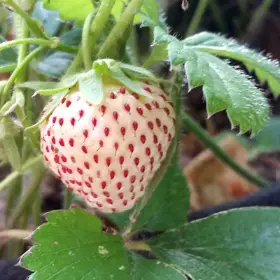
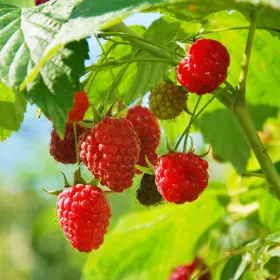
Unique fruit to add to our garden.
I tasted it in someone else’s garden- delicious!
Only because it was available. Your ordering system is beastly hard to work with on my iPhone.
Variety and dependable plants